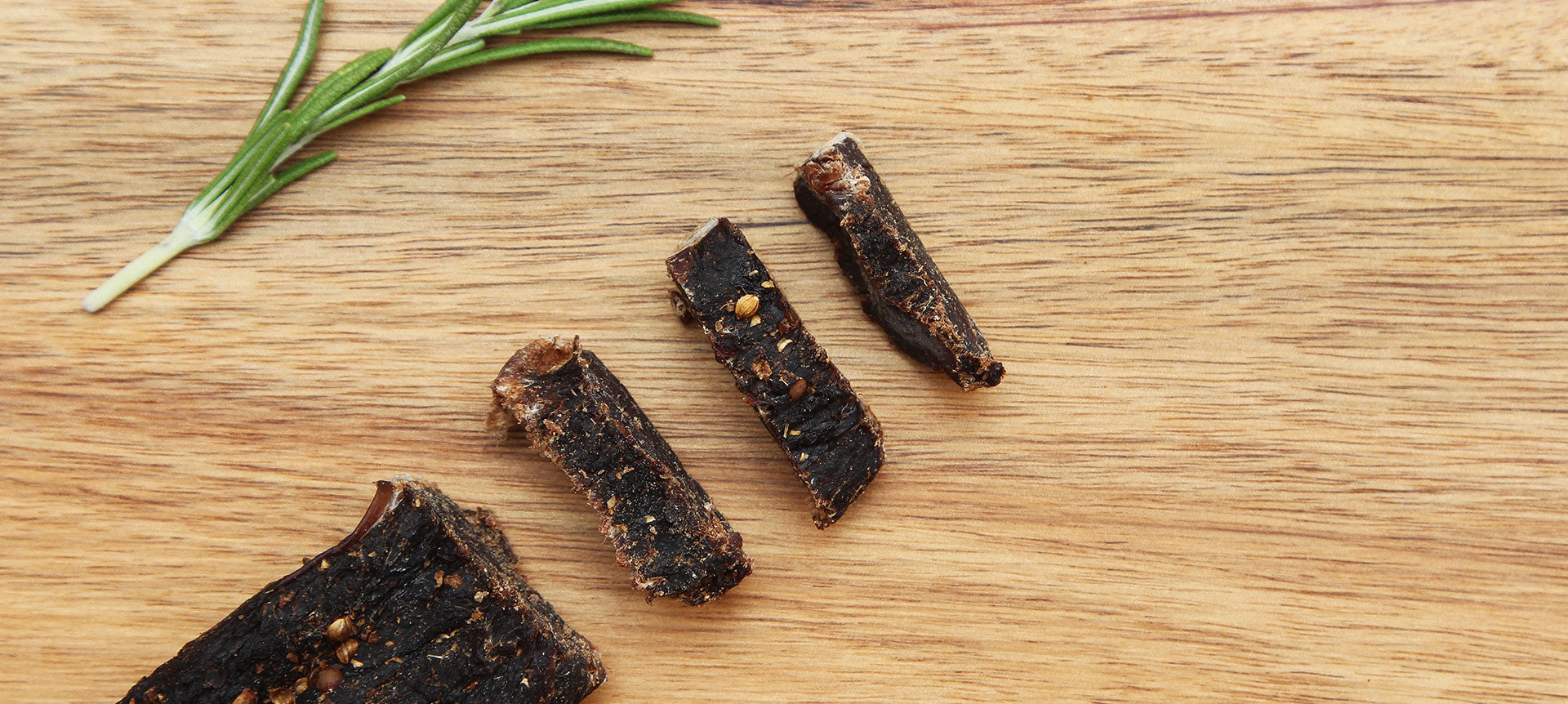FAQ
 What is biltong?
What is biltong? Biltong is a meat snack that originated in South Africa. It allows you to enjoy premium, tender beef in its most pure form. We start with top quality beef that is then seasoned and marinated for a sensational tasty flavor. It’s then air dried to perfection and cut into flawless pieces to enjoy. Compared to beef jerky, biltong is healthier, is sugar free, has more protein, has no artificial flavors or preservatives, is gluten free, has an exceptional tender texture and taste so much better.
 What is the difference between Biltong and Jerky?
What is the difference between Biltong and Jerky? The way the two snacks are prepared are one of the differentiators that set them apart. The process to make biltong requires that the beef is air dried with no heat which gives it the more tender texture and allows for the beef to retain more protein, while jerky uses a dehydrator or an oven. Biltong is also healthier while being even more tasty, only all natural ingredients are used and contains zero sugar, while jerky can have artificial flavors and added sugars. The thickness of the meat is also another key difference, biltong uses large slabs of beef which allows for more of all-natural beef flavor, while jerky uses thin slices.
 Is your biltong really sugar free?
Is your biltong really sugar free? It sounds too good to be true, but it is. Our biltong contains zero sugar, has no artificial flavors or preservatives, nitrates or MSG or fillers. In addition, it’s gluten free and zero carbs per serving.
 Is biltong good for Keto or Paleo diets?
Is biltong good for Keto or Paleo diets? Biltong is perfect for those following a keto or paleo diet, it’s high in protein and zero carbs per serving and makes for a perfect meat snack.
 Is wholesale available?
Is wholesale available? Absolutely, check out our wholesale page for more information:
 Is Monty’s biltong halal?
Is Monty’s biltong halal? Yes! We are proud to be the first and only certified halal biltong in the United States.
 What are the benefits of eating halal?
What are the benefits of eating halal? Halal meat is simply a humane, ethical, and healthier way of butchery where the animals are treated in a very caring manner.
With halal meat, a specific emphasis is put on sanitation and cleanliness based on religion. The animals raised on halal farms are raised in a vastly better environment as the farmers must stick to the guidelines that have been set by their religion.The animals must be treated well and given healthy and clean feeds. There is no use of antibiotics and other additives, the farmers abstain from utilizing anti-infection agents and synthetic concoctions that numerous industry leaders use with a focus on making heavy profits.
It is not allowed to slaughter a sick animal; therefore, animals are raised in clean conditions that support disease free environments. The animals are treated with respect and it is widely accepted that halal slaughter is very ethical, causing less short- and long-term stress to the animals, compared to modern farming techniques.
Islamic slaughter demands that the blood is totally depleted from the corpse, resulting in better and fresher meat, free from bacteria. As the meat is not stressed, it is free from “fear toxins” which results in softer meat which is free from radicals which are released when animals are under stress. There is a school of thought that this would produce cleaner and healthier meat for the mind and body.
Many people believe halal meat tastes better as the blood in meat can rot and negatively impacts taste. Halal meat is more tender and tastes better. It also stays fresh longer due to the absence of blood, which restricts bacteria growth.

